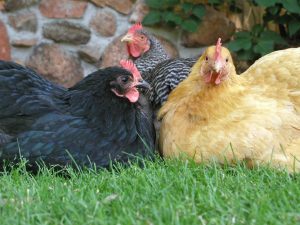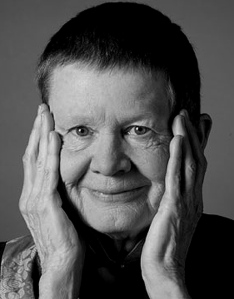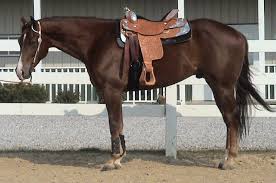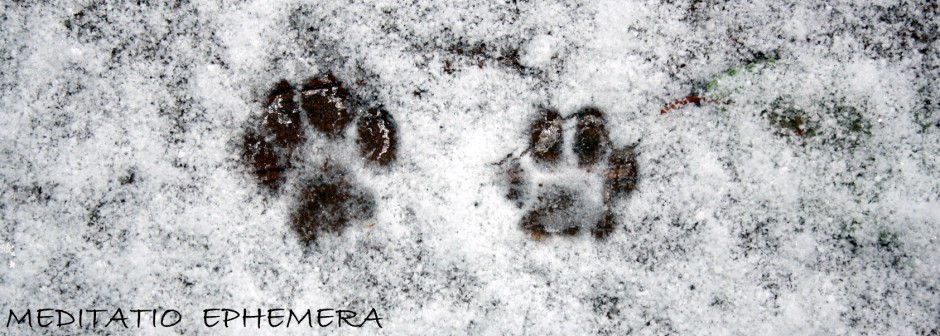I had one of those conversations with my best friend yesterday, the kind that turn south and end in stony silence on her side and frustration on mine.
My friend eats a lot of eggs, always throwing out the yolks, which she dislikes, rather than feeding them to her dog or finding some other use for them. Sin #1: Needless waste. Compounded, in my mind, by Sin #2: Although she has the money, she refuses to buy humanely produced eggs at the local co-op, or even the marginally cage-free eggs now conveniently available at grocery chains.
This despite the fact that she lived with me and cared for — and about — my free-ranging hens, and knows the miserable lives of commercial, caged battery layers.
These conversations go nowhere. increasingly impatient, I make the moral arguments: that we all must make reasonable efforts to avoid waste and to care for other species. She acknowledges their merits — and then digs in because she simply doesn’t want to change. Fifty years hence, she carries a strong streak of childhood rebellion against a domineering mother. It causes her to resist any imposition on her right to do as she pleases, even while acknowledging that indiscriminately insisting on that control causes harm, and that better options are readily available.
My friend won’t confront that ancient residue — the suggestion that she do so becomes another external dictate to resist — and her retreats in the wake of such disagreements leave me to consider the sense of moral superiority that drives my part of these interactions. ( I like horses a lot and regularly gallop off, pell-mell, on a favorite steed, Moral High.) 
Buddhist nun Pema Chodron speaks of the need to turn our attention back to ourselves when we presume the moral high ground: “When I feel righteous indignation, I know that it has something to do with me,” she writes. “In order to be effective in stopping brutality on this planet, you have to work with your own aggressions, with what has been triggered in you, so that you can communicate from the heart.”
The Bible (Matthew 7:5) contains the same teaching: “Thou hypocrite, first cast the beam out of thine own eye; and then shalt thou see clearly to cast out the mote of thy brother’s eye.”
Damn: Me. Again.
 Catholic theology describes three kinds of ignorance: invincible, or stuff we have no way of knowing; vincible, or stuff that we could know — and act on — with a little effort; and nescience, lack of knowledge that doesn’t matter in the circumstances. Buddhist psychologist and author Tara Brach, paraphrasing religious scholar James Carse, describes the same trio slightly differently:
Catholic theology describes three kinds of ignorance: invincible, or stuff we have no way of knowing; vincible, or stuff that we could know — and act on — with a little effort; and nescience, lack of knowledge that doesn’t matter in the circumstances. Buddhist psychologist and author Tara Brach, paraphrasing religious scholar James Carse, describes the same trio slightly differently:
Our work as awakening human beings lies primarily in the area of vincible or willful ignorance — what we refuse to fully know because knowledge implicates responsibility, which we must then consciously embrace or shirk — and secondarily in acknowledging that even our clearest vision is flawed, or at least incomplete.
Which means I need to dismount from my high horse, yet again. And turn my attention from my friend’s recalcitrance to the hardness in my own heart, to the separation I create when I insist another do inner work I have barely begun myself.
It means I need to remember once more that — seemingly riding high or knowingly stumbling along — we all travel this rugged path together.




je voudais si pou vais sortire avec moi pour je te dis bb
LikeLike
Merci beaucoup
LikeLike
ok et merci
LikeLike
bien pour moi
LikeLike
Je vous remercie
LikeLiked by 1 person
a ok bb
LikeLike
l amoure avec toi
LikeLike
I’m not going to publicly comment on this on.
LikeLike
Just when I thought you weren’t reading! 🙂
LikeLike
My steed is more of a recalcitrant burro, but I certainly face the same challenge! Alas, with mixed results.
LikeLike
We are a motley– but earnest — herd, Bob. 🙂
LikeLiked by 1 person
Yep – let it go! Even when we “know better” “have experience” “got the t shirt” …. It means nothing to those on a their own path.
For us, the next step … Even more important than theirs … Is to let them be and embrace them for who and where they are.
That was the biggie for me 💛
LikeLike
Thanks for sharing, Val! As Pema says, it’s a big challenge to advocate for change from a place of inner peace and understanding, rather than from anger and judgment. Kudos to those who can do it, or aspire to! They are the ones most likely to succeed.
LikeLiked by 1 person
I hate when that happens…the moment you realize it’s more about you than anyone else. Every know and then I have to dismount my high horse too.
LikeLike
By golly– there’s a whole herd of us! 🙂 Thanks for reading and commenting, Ann.
LikeLiked by 2 people
wonderful reflection
to get off the high horse
to see eye to eye 🙂
LikeLiked by 1 person
Thank you, my friend!
LikeLike
Invincible, vincible, and nescience: very interesting. I will work with one of those three musketeers! Thank you.
LikeLike
You’re welcome. Thanks for reading!
LikeLiked by 1 person